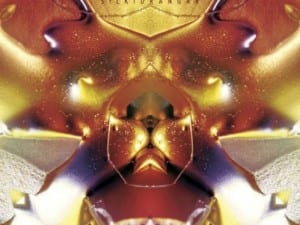In Conversation With
Firstly, can you tell me a bit about yourself?
My dad is an American and my mum’s a New Zealander. I was born in Canada while Dad was studying at the University of Western Ontario, and then my family emigrated back to New Zealand when I was six. We’ve never owned a TV and in NZ we didn’t own a car until I was nine. My dad would always come and pick me up from friends’ houses on a tandem bike – they have two tandems, a great old clunky one and a sleeker model for road tripping. My mum was a librarian, so I read a lot and we did a lot of hiking. I was a really happy kid.
You’re 23 years old, how did you get your first novel published?
In 2007 I did my MA in Creative Writing at the International Institute of Modern Letters in Wellington and wrote The Rehearsal, while I was there. At the IIML, you get external feedback on your manuscript from three people: your supervisor, a published author and a publisher, Fergus Barrowman of VUP. Fergus read the first complete draft in his capacity as a marker, and then offered to publish it. I still feel really lucky about that. I didn’t need a literary agent in NZ, but once The Rehearsal was published there, my agent in London, Caroline Dawnay, picked up the novel and she offered to represent me in the wider world.
What’s your writing process like?
I tend to alternate between reading phases and writing phases, where I focus on one or the other, and as far as I can tell, the phases last about three weeks. While I was writing The Rehearsal, I read very purposefully and selectively and took a lot of notes, especially from theatre manifestos – The Theatre and Its Double and Towards a Poor Theatre were both massive influences. It takes me an excruciatingly long time to write a single sentence, but I’m not a drafter – once I’ve gotten something onto the page, it usually sticks.
How did you come up with the idea for The Rehearsal?
In 2006, I began writing a dramatic monologue for my girlfriend, who was studying acting at the NZ drama school. She’s an accomplished saxophone player, and we thought it would be interesting to write a monologue that showcased both her talents. I never finished the monologue, but when I returned to the script later, it struck me that it would be interesting to see how it behaved as a piece of fiction. I broke it apart and turned it into a little series of scenes, sections of the monologue remain intact in the novel, in the first chapter and in the last.
Much of the novel is about the boundaries between truth and fiction, can you tell me more about that?
I am really interested in the performance of self: how we perform ourselves, how we perform each other, and how those performances solidify over time. I think those ideas are especially pertinent today, in a world so saturated with images and artifice.
Who is your favourite character and why?
I feel a tremendous amount of affection for Stanley, and enjoyed writing him very much. As a high school student, I think I was probably part Stanley, part Julia: I was obsessive like Julia, but felt hapless and lumpish most of the time like Stanley does. Stanley’s dilemma– that he can’t distinguish between the proof of an experience and the experience itself – is something that resonates with my own life very deeply.
Who are your favourite authors and what was the last book you read?
The last book I read was the astonishing novella Rosa by Cynthia Ozick. Alan Moore, George Eliot, Janet Frame, Carson McCullers, Milan Kundera and Iris Murdoch have all had a profound effect on me as a writer and as a human being. I read a lot of children’s literature. I like the honesty and urgency of children’s books. Robert O’Brien, Robert Cormier, and Avi are authors to whom I return again and again.
What else do you enjoy?
I like hiking, karaoke bars, costume parties and musical theatre. I like conversations that begin with a hypothetical. I like watching people reinvent themselves.
What are your future plans? Are you working on any new material at the moment?
I’ve been dreaming up a quartet of young adult fantasy novels for the last couple of years, and I’m hard at work on that. Also in the pipeline is another literary novel for adults, set in 1860s New Zealand. Both projects are totally unlike The Rehearsal. It took me a while to change gears after The Rehearsal was published; I kept writing these tightly stylised little scenes until I realised I was just ripping myself off, and I needed to get into a different groove.





